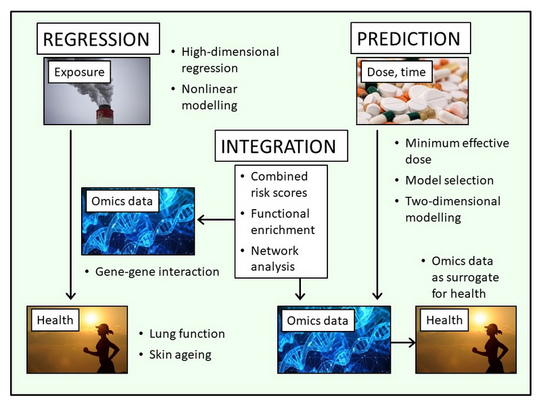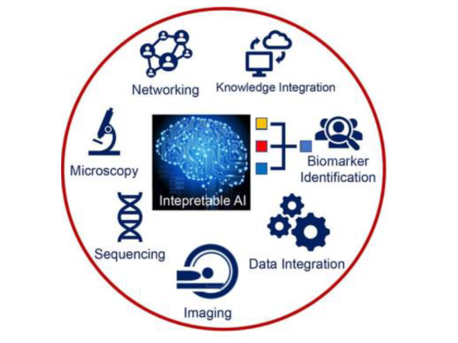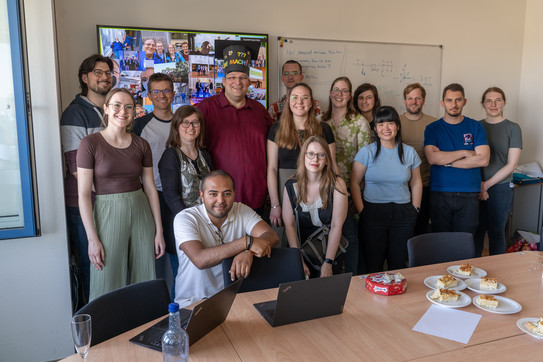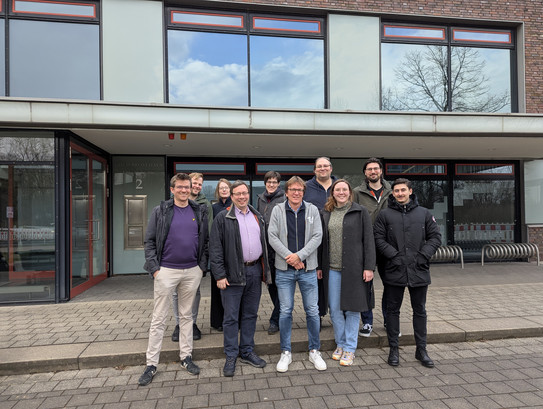Biostatistical Methods for High-Dimensional Data in Toxicology
Welcome to Research Training Group 2624!
This RTG is funded by the DFG (Deutsche Forschungsgemeinschaft) and the funding period is 04/2021 - 03/2030.
In June 2025, the Deutsche Forschungsgemeinschaft (DFG, German Research Foundation) decided to extend our RTG for a further 4.5 years. It will fund the RTG with a further 4.2 million euros from October 2025.
Here is the news on the TU Dortmund University website.
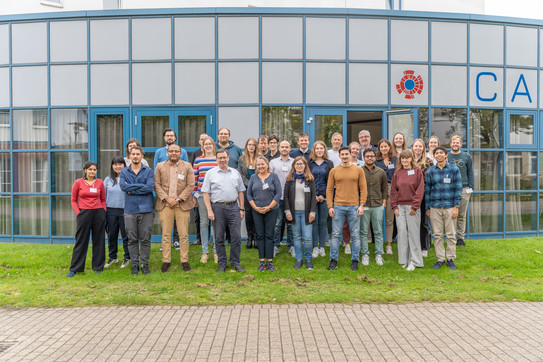
Science communication workshop
How can scientific topics be explained in a way that is understandable to the public?
On 14 March 2025, some members of our department had the opportunity to learn exactly that! In a workshop led by Prof. Dr. Holger Wormer and Marcus Anhäuser from Institute for Journalism, everything revolved around the topic of science communication.
The participants learned the basics of news theory, gained insights into how press releases related to science should be formulated, and practiced how statistical research can be presented in an understandable way using their own examples.
Many thanks to Holger Wormer and Marcus Anhäuser for conducting this workshop!
Please confirm video activation.
After activation, cookies will be set and data is sent to YouTube (Google).
To the Google Privacy Policy
A version of this video with subtitles can be found here.
Aim and Mission
The aim of the Research Training Group is the development and application of biostatistical methods for the analysis of high-dimensional data for modelling and risk assessment in toxicology. Doctoral researchers acquire knowledge in toxicology and the ability to develop and apply statistical methods for questions in pharmacological and environmental toxicology. In toxicology, innovative statistical methods are required to optimally exploit the ever-growing, heterogeneous, molecular flood of data for adequate modelling and risk prediction. In addition to conventional one-dimensional dose-response models, models that are more complex need to be developed. High-dimensional omics data are used in modelling both as an interaction factor for toxicological exposure and as a target.
Research programme
The three project areas are regression, prediction, and integration. To model health indicators, modern regression techniques will be developed that analyse the genetic influence on the association between toxicological exposure and health, using methods with high-dimensional predictors for gene-exposure interactions. The estimation of the minimum effective dose of a compound will be specified by selecting and combining genetic markers, using methods from statistical learning. Modelling approaches will be developed for the simultaneous consideration of different doses and exposure times. Suitable data integration through the combination of different molecular data sources and additional biological knowledge will allow more informative toxicological risk predictions and better distinctions of toxicological effects.
Qualification programme
The RTG offers an elaborate qualification programme. Doctoral and postdoctoral researchers gain an outstanding qualification profile, based on scientific training in biostatistics, toxicology and statistical analysis of high-dimensional molecular data as well as courses on technical skills and transferable skills. Doctoral researchers are jointly supervised by researchers from statistics and toxicology, and they benefit from the expertise of both and from established cooperations. Scientific interaction and networking will be supported by a regular seminar, including lectures by international visiting researchers, and international visibility will be strengthened through conference participation and workshop organisation.
